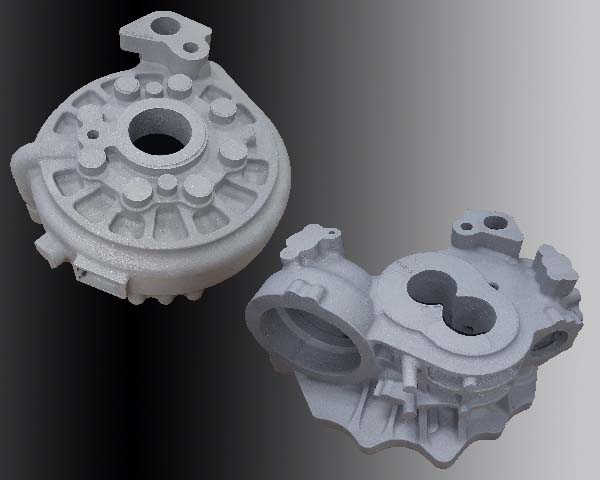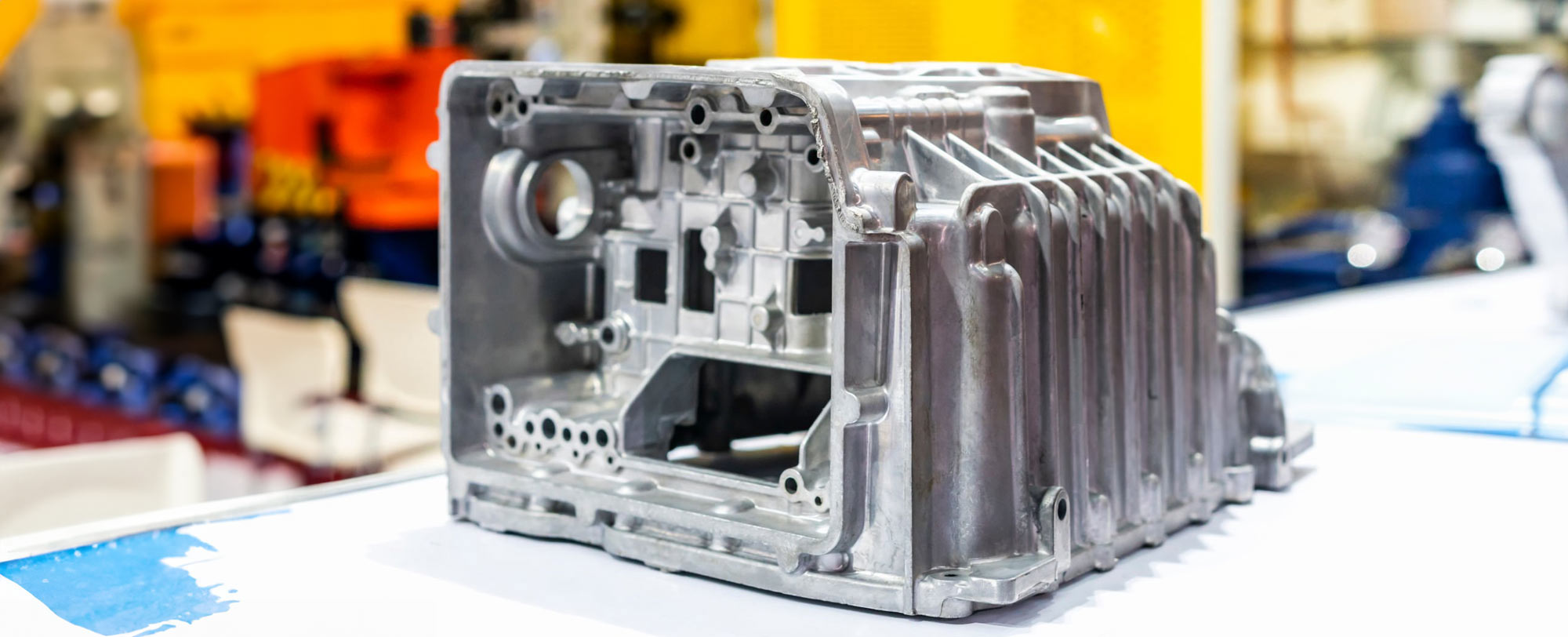The Influence of Ingenious Foundry Services on Sustainable Production Practices
Cutting-edge factory services play a necessary function in advancing sustainable manufacturing techniques. By incorporating recycling innovations and energy-efficient processes, these services substantially lower environmental effect. Factories can recover important products, therefore reducing dependence on virgin sources. As automation and lean production principles obtain traction, manufacturing effectiveness is enhanced. Nevertheless, the complete level of these advancements and their implications for the future of manufacturing remain to be discovered.
The Role of Advanced Recycling Technologies in Foundries
Advanced recycling technologies are transforming the landscape of shops by boosting product recovery and lowering waste. These innovative procedures allow factories to reclaim useful metals and materials from scrap, decreasing dependence on virgin resources. By integrating sophisticated sorting, shredding, and melting methods, factories can effectively draw out functional products from disposed of products, thus promoting a round economic climate.
In addition, these technologies support the manufacturing of premium alloys and parts, ensuring that recycled materials meet rigid industry standards (Precision aluminum casting). As an outcome, shops are not just boosting their product efficiency however also reducing the ecological impact connected with standard manufacturing techniques
This shift towards progressed reusing not only boosts economic feasibility for factories however also straightens with international sustainability objectives. Inevitably, the consolidation of these modern technologies stands for a considerable action ahead in the quest for sustainable production methods within the factory industry.
Energy Efficiency: Minimizing Intake in Manufacturing Processes
Energy efficiency in making procedures is important for sustainable procedures. Strategies such as procedure optimization strategies, renewable resource combination, and waste warmth recuperation play vital roles in reducing energy consumption. By concentrating on these locations, makers can significantly decrease their ecological impact while enhancing efficiency.
Refine Optimization Techniques
A significant number of producing centers are significantly embracing procedure optimization strategies to improve energy effectiveness and decrease usage. These strategies involve fine-tuning and evaluating manufacturing workflows, determining traffic jams, and applying automation to improve operations. By leveraging data analytics, manufacturers can keep track of energy usage in real-time, enabling positive adjustments to minimize waste. Strategies such as Lean Manufacturing and 6 Sigma focus on maximizing and removing inefficiencies resource appropriation. In addition, advanced technologies like Net of Things (IoT) sensing units supply understandings into tools performance, assisting in anticipating upkeep that prevents energy loss. In general, these procedure optimization approaches not only add to reduced power usage however likewise promote a society of continuous improvement within producing settings, aligning operational experiment sustainability goals.
Renewable Power Combination
Many manufacturing facilities are progressively integrating eco-friendly power sources to boost total energy effectiveness and minimize dependence on conventional power grids. This change consists of the adoption of solar, wind, and biomass energy, which can greatly reduce operational expenses and reduce carbon footprints. By utilizing these sustainable energy resources, suppliers not just lessen their environmental impact yet additionally boost energy strength. Furthermore, integrating sustainable power systems typically entails advanced innovations such as energy storage and smart grid remedies, which enhance power usage and help with real-time tracking. This combination supports producers in attaining governing compliance and conference sustainability goals while cultivating development in manufacturing procedures. Inevitably, eco-friendly power combination stands for a critical change in the direction of more sustainable production methods and lasting practicality.
Waste Warmth Recuperation
Incorporating renewable resource resources establishes the phase for additional advancements in energy efficiency, particularly through the implementation of waste heat healing systems. These systems catch excess thermal energy generated during making procedures, which would certainly otherwise be lost to the environment. By repurposing this heat, shops can substantially minimize their energy intake, reduced operational costs, and minimize their carbon footprint. The recovered warm can be made use of for different applications, such as home heating, power generation, or pre-heating raw materials. Consequently, waste warmth healing not only boosts power investigate this site efficiency however additionally contributes to a sustainable manufacturing model. Cutting-edge factory solutions that prioritize this modern technology are leading the way for an ecologically accountable commercial landscape, lining up earnings with ecological stewardship.
Using Eco-Friendly Materials in Factory Workflow
As the need for lasting manufacturing practices grows, foundries are progressively transforming to eco-friendly materials to enhance their operations. By integrating sustainable options, such as recycled metals and bio-based binders, foundries can significantly minimize their environmental impact. These products frequently call for much less energy for processing and can decrease harmful emissions during manufacturing.
Furthermore, the adoption of green materials not just lines up with regulatory criteria yet additionally satisfies consumer preferences site here for greener products. Factories are checking out innovative alternatives, such as making use of natural ingredients that enhance mold high quality while remaining safe.
The shift to sustainable products cultivates a round economy by advertising resource reuse and decreasing waste. Furthermore, this modification can boost the total performance of foundry procedures, as green materials usually display exceptional buildings, leading to enhanced product performance - Aluminum Foundry. Eventually, the application of environment-friendly products stands for an essential step towards lasting production in the factory sector

Innovations in Waste Administration and Reduction Techniques
The change in the direction of eco-friendly products in shop procedures paves the way for improvements in waste monitoring and decrease techniques. Innovative foundry services are progressively adopting strategies that reduce waste generation and advertise recycling. Techniques such as closed-loop systems enable the reuse of products, considerably reducing the volume of waste produced throughout producing processes. Additionally, improvements in filtering and separation innovations enable the reliable healing of important spin-offs, which can be rehabilitated right into the manufacturing cycle.
Furthermore, the application of real-time surveillance systems provides data-driven understandings into waste generation patterns, assisting in notified decision-making to enhance source use. Foundries are likewise checking out biowaste services, transforming organic waste into energy or functional products, additionally advertising sustainability. These innovations not just add to a round economy but additionally boost the general environmental efficiency of shop operations, highlighting the market's dedication to decreasing its environmental impact.
The Impact of Automation on Lasting Production
While several get more sectors go for sustainability, automation emerges as a crucial factor in boosting lasting production methods within shops. By incorporating automated systems, shops can attain higher performance, minimize waste, and lower power intake. Automated procedures enable accurate control over manufacturing specifications, reducing problems and rework, which subsequently preserves sources.
Automation assists in the tracking of environmental impacts, enabling real-time adjustments that line up with sustainability objectives. Advanced robotics and fabricated intelligence can enhance product usage, leading to substantial decreases in scrap and emissions
In addition, automated technologies promote safer workplace by dealing with harmful tasks, therefore enhancing worker well-being while guaranteeing compliance with ecological regulations. Overall, the fostering of automation within factories not only streamlines procedures but additionally plays an essential duty beforehand lasting manufacturing methods, adding to a much more liable industrial landscape.
Situation Studies: Effective Application of Sustainable Foundry Practices
Successful execution of lasting methods in factories can be shown via numerous instance research studies that highlight innovative techniques and measurable end results. One noteworthy example is a mid-sized shop that embraced a closed-loop water recycling system, reducing water intake by 40% and reducing wastewater generation. In addition, this center altered to using eco-friendly mold and mildew products, which not just better item top quality yet likewise improved worker safety and security.
One more significant instance included a huge shop integrating renewable resource resources, such as solar panels, which balance out 30% of its energy requires. This campaign not only reduced functional costs yet also added to a significant reduction in carbon discharges.
Finally, a factory that applied lean manufacturing methods reported a 25% rise in efficiency, leading to much less worldly waste and optimized production processes. These cases collectively underscore the substantial benefits and sustainability advancements achievable with ingenious foundry methods.
Often Asked Questions
How Do Ingenious Foundry Solutions Add To Overall Sustainability Goals?
Innovative foundry services enhance overall sustainability goals by maximizing resource use, lowering waste, and boosting power effectiveness. These innovations add to lower carbon footprints and advertise ecologically liable methods within the production sector, supporting broader sustainability efforts.
What Are the Economic Benefits of Taking On Lasting Factory Practices?
Adopting sustainable factory techniques can decrease operational expenses, improve source efficiency, and improve competition. In addition, these techniques can attract eco-conscious consumers and financiers, ultimately resulting in raised success and long-lasting economic practicality for companies.
How Can Small Shops Carry Out Sustainable Innovations Properly?
Tiny shops can carry out sustainable technologies successfully by embracing energy-efficient technologies, enhancing source use, educating staff on sustainable techniques, collaborating with vendors for eco-friendly products, and participating in continual enhancement processes to lower waste and discharges.
What Certifications Exist for Lasting Factory Procedures?

How Do Consumer Preferences Influence Lasting Production in Foundries?
Customer choices considerably influence sustainable manufacturing in foundries by driving need for environment-friendly items. As customers focus on sustainability, foundries adjust their techniques, including greener products and innovations to satisfy market expectations and improve their competitive benefit.
By repurposing this warmth, foundries can considerably decrease their power usage, lower operational prices, and lessen their carbon impact. Factories are likewise discovering biowaste remedies, transforming organic waste into energy or usable products, even more advertising sustainability. By integrating automated systems, shops can accomplish greater efficiency, minimize waste, and lower power consumption. An additional significant instance included a huge factory integrating renewable power sources, such as solar panels, which offset 30% of its power needs. Ingenious factory solutions boost total sustainability objectives by optimizing source usage, lowering waste, and enhancing power effectiveness.